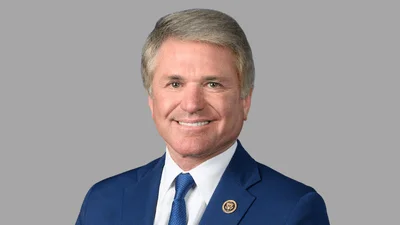Dear Secretary Lew:
As members of the House Ways and Means Subcommittee on Oversight, we are writing to urge you to exercise the discretion conferred to you under 19 U.S.C. § 1618 and 31 U.S.C. § 5321(c) to remit the funds seized from Randy and Karen Sowers pursuant to the attached petition filed with the Department of Justice. We also ask you to review other cases in which the Internal Revenue Service seized funds on the suspicion that the account holders violated the structuring statute and return funds as appropriate in cases that do not meet the IRS’s current policy that the funds must have come from an illegal source.
On Feb. 11, 2015, the Subcommittee held a hearing to examine the IRS’s use of its civil asset forfeiture authority to seize funds in cases in which the IRS believed monetary transactions had been structured to avoid IRS reporting requirements. As you know, the statute that prohibits structuring was designed to help interdict money laundering, drug trafficking, and terror financing schemes, not innocent Americans who simply make frequent cash deposits. However, in the course of our investigation we heard from numerous small business owners whose funds the IRS seized solely for this reason. The IRS and the Department of Justice attorneys who pursued these cases would then offer to settle if the small business owners would agree to relinquish a portion of the seized funds-even though in many of these cases, the DOJ and IRS conceded that the small business owners had done nothing wrong.
At our hearing, Randy Sowers, a Maryland dairy farmer, testified that after the IRS seized $67,000 from his farm’s account in 2012 because his wife, Karen, often made large cash deposits of proceeds from farmer’s markets. A bank teller told Mrs. Sowers that it would reduce paperwork if she deposited the funds in increments under $10,000. Mrs. Sowers did so, believing she was making life easier for the teller, not because she intended to violate federal law. Then, in the course of settlement negotiations, Mr. Sowers told their story to a reporter who published an article on the Sowers’ plight. The attorney prosecuting the case then stated in an e-mail that the terms of the settlement agreement were harsher than in other, similar cases because Mr. Sowers had exercised his First Amendment right and spoken to the press. Ultimately, the Sowers settled their case for $29,500 because they needed the remainder of the funds to run their farm.
n his testimony, IRS Commissioner Koskinen apologized to everyone who had been treated unfairly. And, in fact, several months before the hearing, the IRS changed its policy to prohibit seizures based on suspicions of structuring unless the funds came from an illegal source or there were other, exceptional circumstances. That policy change, however, came too late to help the victims of the IRS’s abusive seizure practices. Now, Treasury still holds funds seized from innocent small business owners who settled their cases only because they could not afford to do otherwise.
As the Treasury Secretary, you have the opportunity to right the wrong done to these small business owners. As discussed in the attached petition on behalf of Randy and Karen Sowers, you have the discretion to return the seized funds to their rightful owners. The IRS’s October 2014 policy change is tantamount to an admission that it never should have seized funds that were not associated with an illegal source. The Sowers and others like them should be treated with the same fairness applied to cases going forward. We ask that you grant this petition and review other, similar cases and return the seized funds expeditiously.
Thank you for your attention to this important matter. If you have any questions about our request, please contact Oversight Subcommittee staff at (202) 226-4774.
Sincerely,
PETER J. ROSKAM, Chairman
Subcommittee on Oversight
JOHN LEWIS,
Ranking Member
Subcommittee on Oversight
MIKE KELLY
CHARLES RANGEL
JIM RENACCI
JOSEPH CROWLEY
PATRICK MEEHAN
KRISTI NOEM
JASON SMITH
CC:
The Honorable Loretta Lynch
United States Attorney General
The Honorable Rod J. Rosenstein
United States Attorney, District of Maryland
The Honorable John Koskinen
Internal Revenue Service Commissioner
Mr. M. Kendall Day
Acting Chief
United States Department of Justice Asset Forfeiture and Money Laundering Division
SUBCOMMITTEE: Oversight SUBCOMMITTEE: Full Committee








